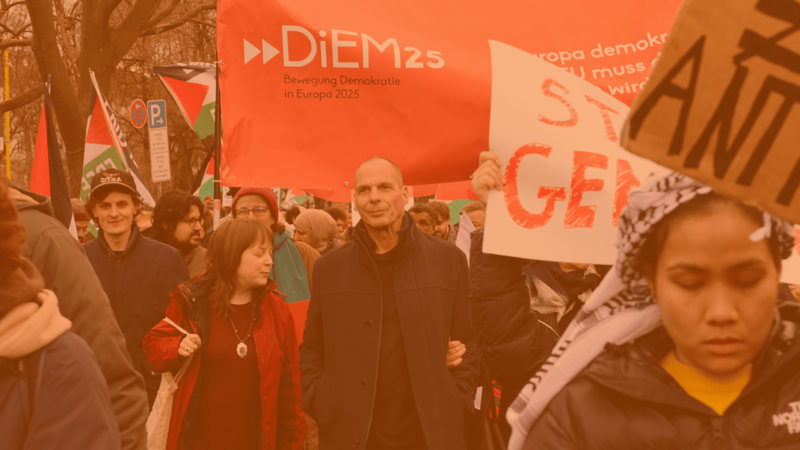On March 8, it is crucial for Yes votes to prevail in both the ‘Family’ and ‘Care’ Referendums to continue progress towards social inclusivity, reflecting the spirit of recent constitutional amendments
On March 8, International Women’s Day, people in Ireland will be asked to vote in two referendums to change the Constitution, Bunreacht na hÉireann. The first referendum concerns the concept of family in the Constitution. The second referendum proposes to delete an existing part of the Constitution and insert new text providing recognition for care provided by family members to each other.
The first referendum puts forward the prospect of a 39th Amendment, the ‘Family Amendment’ which proposes to change both Article 41.1.1° and Article 41.3.1°. The proposed change to Article 41.1.1° is: “The State recognises the family, whether founded on marriage or on other durable relationships, as the natural, primary, and fundamental unit group of society, and as a moral institution possessing inalienable and imprescriptible rights, antecedent and superior to all positive law.”
The proposed change to Article 41.3.1° involves deleting the current text ‘on which the Family is founded,’ so that the amended article will read: “The State pledges itself to guard with special care the institution of Marriage, and to protect it against attack.”
The second referendum, the 40th Amendment to the Constitution, proposes deleting the current Articles 41.2.1° and 41.2.2° and inserting a new Article 42B: “The State recognises that the provision of care, by members of a family to one another by reason of the bonds that exist among them, gives to society a support without which the common good cannot be achieved, and shall strive to support such provision.”
These proposals result from the deliberations of the Citizens’ Assembly on Gender Equality, which met between 2020 and 2021, making 45 priority recommendations across various areas, including changes to the Constitution, politics and leadership, caregiving and childcare, domestic, sexual, and gender-based violence, pay and the workplace, and social protection.
When announced in April 2021, Catherine Day, Chair of the Assembly, emphasised the Assembly’s call for significant changes to make Ireland a more gender-equal country. She stated: “The recommendations… call for big changes that can make Ireland a better and more gender equal place to live for all of us.”
Most civic groups and trade unions campaigning for people’s rights support the Citizens’ Assembly’s viewpoint, advocating a Yes-Yes vote in both referendums. They argue that a “yes vote” will constitutionally protect diverse family forms and recognise the importance of care roles.
The Irish Congress of Trade Unions Executive Council also supports a Yes-Yes vote, highlighting the need to acknowledge the diversity of family life in Ireland today, which includes 150,000 cohabiting couples and over 200,000 single-parent families.
Prominent civil rights campaigner John O’Meara, who recently won a Supreme Court case benefiting cohabiting couples with children, urges support for the two Yes votes, highlighting the importance of the referendums for all families.
However, some groups and institutions oppose the changes proposed by the Citizens’ Assembly, advocating for No votes. They argue that the family amendment could undermine the significance of marriage in relation to family. They wish to maintain the traditional definition of family and the role of women in the home as stated in the current Constitution. They argue for the retention of Article 41.2 of the 1937 Constitution, which states “that by her life within the home, woman gives to the State a support without which the common good cannot be achieved,” and “to ensure that mothers shall not be obliged by economic necessity to engage in labour to the neglect of their duties in the home”.
These opposing views extend to the ‘care amendment,’ with some arguing that the proposed changes, such as the proposed term “strive to support” in a new 42B Article appeared to weaken the State’s obligation to support care, potentially leaving carers, people with disabilities, and older people without enforceable rights.
The “strive to support such provision” of care in the Amendment’s wording is certainly inadequate, particularly when there is a preponderance by governments for austerity. It would be much better to replace this with wording committing the State to their responsibility to support care services for individuals, families and communities. The Citizens’ Assembly’s broader recommendations address this, and aim to ensure comprehensive support for care and social services, underscoring the importance of government action to implement these changes.
On March 8, it is crucial for Yes votes to prevail in both the ‘Family’ and ‘Care’ Referendums to continue progress towards social inclusivity, reflecting the spirit of recent constitutional amendments like the ‘Marriage Equality’ and ‘Repeal of the 8th’ Amendments. Evolving family structures are challenging traditional definitions of family and gender roles, reflecting broader societal shifts towards inclusivity, equality, and the protection and advancement of social, economic and cultural rights for all. Along with people en masse standing together for their rights, these referendums are a further extension of the trend.
The Citizens’ Assembly on Gender Equality proposed these constitutional changes alongside recommendations for improvements in childcare, community care, pay, and social protection, emphasising the need for comprehensive support systems.
There are not strong enough reasons to vote against the referendums. In addition to proposing changes to the Constitution, the Citizens’ Assembly has put forward specific recommendations to improve the provision of care and social services. They expect the government to act on and implement these recommendations. These include creating a publicly funded, accessible, and regulated childcare model over the next decade; making changes to Carer’s Allowance; providing respite and pensions for family carers; and developing a fully individualised social protection system that reflects the diversity of today’s lives and promotes an equal division of paid work and caregiving. Additionally, their recommendations include addressing gender equality in any pilot Universal Basic Income scheme implemented by the Government, aligning with DiEM25’s policy for a Universal Basic Dividend as part of a European New Deal.
Voting Yes-Yes for the Amendments on Friday will not only be an explicit endorsement of people’s rights in relation to social and cultural diversity and inclusion, but will better enable us to meet the Citizens’ Assembly’s expectations for the government to put these recommendations into action. We must then assertively call for their implementation. This will be an important element in pushing for more stringent measures through structural changes.to ensure care and dignity for working families and the youth that is urgently required In an Ireland where one and/or both parents in any relationship are having to work owing to the crippling cost of living,
Do you want to be informed of DiEM25's actions? Sign up here










